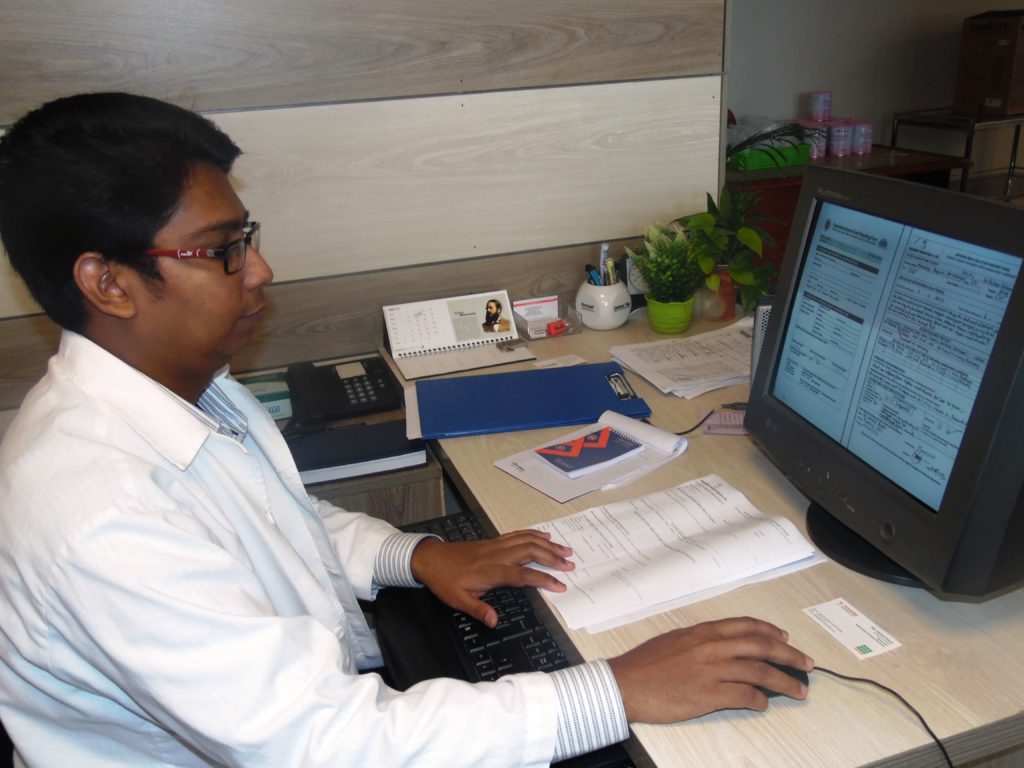Bangladesh’s Pharmacy Registration System Goes Digital
Bangladesh’s Pharmacy Registration System Goes Digital

Obtaining a license to operate a private retail drug store in Bangladesh used to take applicants an average of 45 days, a thicket of paperwork to fill out, and an average cost of $375.
In less than a year, Bangladeshi drug regulators moved to an online system that averages just 5 days, with costs for shop owners slashed by more than 90%.
As the first stop for many Bangladeshis seeking health care, these drug dispensaries are key to ensuring the health of the country’s 165 million people. Roughly 300,000 of these small drug sellers dot the country, with half of them estimated to be unlicensed.
Since 2018, MSH has partnered with the government and communities to improve the quality of pharmacy practices among these drug sellers. The Better Health in Bangladesh project, funded by the UK’s Foreign, Commonwealth and Development Office, builds on efforts MSH helped launch in 2003 in Tanzania that have since been adopted in several African countries.
The work involves helping pharmacy shops meet quality standards like maintaining registries to track antibiotic usage and expired medicines, proper refrigeration, and other measures to become accredited.
But before accreditation, a pharmacy needs a license to operate legally.
Unlicensed medical shops are less likely to engage in Good Pharmacy Practices, putting patients at risk, for example, of taking expired, substandard medicines.
Moving the process online allows shop owners in remote areas to get training on best public health practices, like ways to prevent the spread of antimicrobial resistance. Licensed owners also get access to pharmacy management software to keep up to date on the latest COVID-19 and other health guidance and ensure that patients get the most appropriate tests and treatments.
In just 10 months, the project, assisted by the USAID Medicines, Technologies, and Pharmaceutical Services (MTaPS) Program, worked with Bangladesh’s Directorate General of Drug Administration (DGDA) to create the web-based system. After a three-month pilot, the system accessible by computer or smartphone launched November 2021 and is now fully run by the DGDA.
The overhaul came after the DGDA recognized the time and cost pressures of the paper-based licensing process. The government worked with MSH to hire a local IT firm to develop the Automated Drug Licensing and Renewal System.
The system has been fully operational for about a year, and pharmacy shop owners are seeing concrete benefits.
For example, compared to using the paper-based system, applicants saw the average cost plunge 92% from $375 (the equivalent of 38,000 Bangladeshi Taka) per new application to about $30.
Time savings were also significant for both applicants and DGDA staff. A new application now takes government workers an average of 5 days to review, down from 20 days. For applicants, the average time to get a new license dropped to 5 days from 45 days.
By going digital, applicants now only pay the government fee, avoiding costs from intermediaries like trade associations who benefited from the prior clunky system.
The DGDA also asked MSH to tally the unregulated stores. Local staff visited more than 31,000, encouraging them to register online so they can reap the benefits of being licensed and provide better products and services to their clients.
“The country is making real progress and we look forward to leaving behind a solid foundation for pharmaceutical management when our project wraps up, so all Bangladeshis have access to the medicines they need,” said MSH Technical Advisor for Better Health in Bangladesh, Raian Amzad.